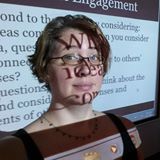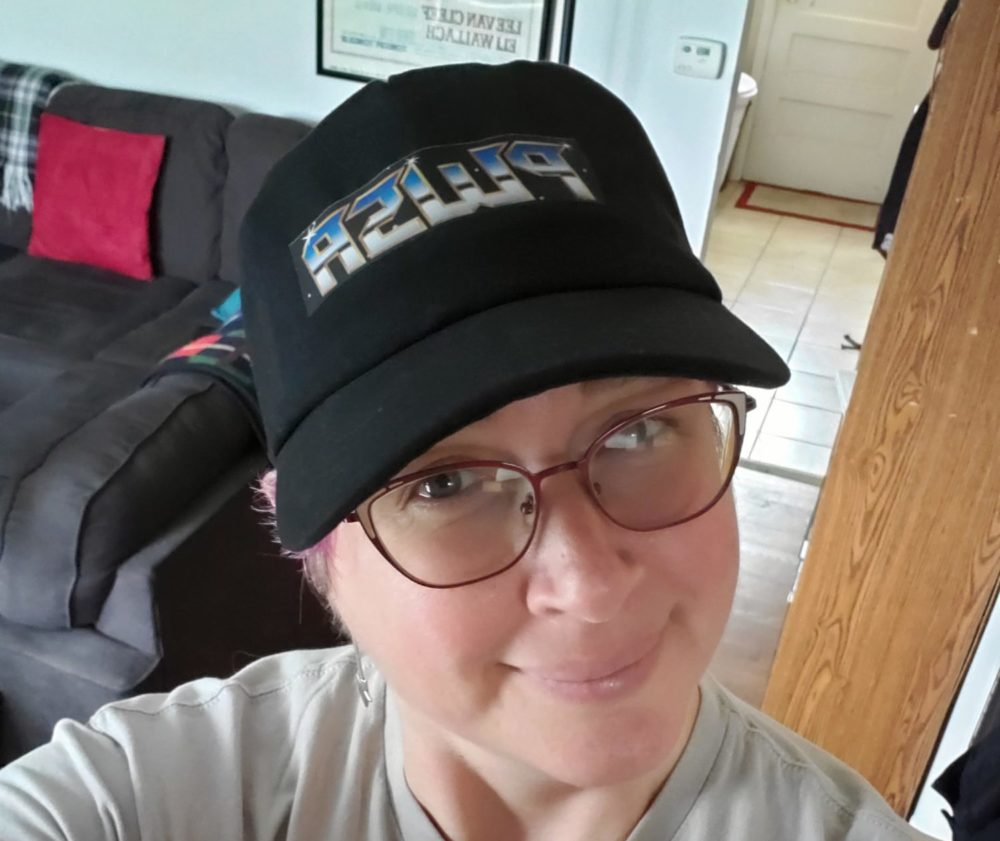What is your area of study/research?
I am Professor of Communication Arts and Sciences at Dominican University in River Forest, Illinois, and I am interested in how people make sense of themselves, each other, and the world around them. That means I largely draw on audience studies, reception studies, and fan studies. I also focus on sense-making related to fictional and/or mediated communication, so I draw on psychology, media studies, critical/cultural studies, and other disciplines.
What led to your interest in pro wrestling and how do you approach pro wrestling from your scholarly discipline/field?
My partner, Christopher Olson, helped me become interested in professional wrestling when he discussed how it could be seen from the perspective of hyperreality. I am very interested in subjective realities as it relates to their sense-making. Each person walks around with/in their own subjective reality based on how they interpret objective, physical reality. Our sense-making is based on many factors, such as education and experience. When Chris said we could see kayfabe as a hyperreality, that really peaked my interest. To me, that means seeing kayfabe as an agreed upon, co-constructed subjective reality that the audience buys into to enjoy professional wrestling. This interest then led me to both watch more professional wrestling and become a fan, and to become more interested in studying professional wrestling audiences and fans for how they make sense of it all.
Are you currently working on any pro wrestling scholarship/research/public scholarship/media? If so, please tell us about it!
I still need to write up my piece on people writing fan fiction in relation to the Johnny Gargano and Tomasso Ciampa storyline from NXT — I’ve now talked about it for two different podcasts this summer! I also hope to get the questionnaire to update us on professional wrestling fans this fall. The questionnaire would be a white paper for PWSA to present basic descriptive facts about the make-up of professional wrestling fans. So many stereotypes still circulate in the general public about professional wrestling fans as dupes, coming from lower class and lower education backgrounds. We all know that isn’t the case, but an updated study would help clarify the matter. My next big research project would be to travel to rural indie promotions and see if professional wrestling fandom could be used to establish common ground across political and religious divides.

Do you bring pro wrestling into any of the classes you teach or research hubs that you work in? How do you find it is received or taken up?
I talk about it as case studies in different ways. When I teach communication research methods, I discuss my research as an example of how to do interviews, questionnaires, and ethnographies. In social media design, I discuss how professional wrestlers use social media to develop and maintain their brands and fandoms. I’ve used lucha libre to discuss different representations of masculinity across time and around the world. Interestingly, every year I find at least one student I can connect with because of a shared interest in professional wrestling.
What is a piece of pro wrestling scholarship that has been generative for you and that you recommend PWSA members read?
I really like the work Annette Hill and R. Tyson Smith have done to explain how kayfabe is created through emotional and physical labor between the wrestlers and fans. I found that to be very helpful in thinking through my own ideas. I also recommend watching documentaries and podcasts, especially those not produced by a major promotion. I saw one on Mick Foley at the beginning of my fandom that helped me appreciate the endurance he had developed to pursue this vocation he loved. Another I saw on the original GLOW portrayed the passion the women had to innovate. I also like Renee Paquette’s podcast for the honest conversations on mental health presented.
Where might people reach you if they would like to know more about your research?
Easiest is just to email me at creinhard@dom.edu. I always try to get back to people as quickly as I can. They can also find me on my blog www.playingwithresearch.com.

